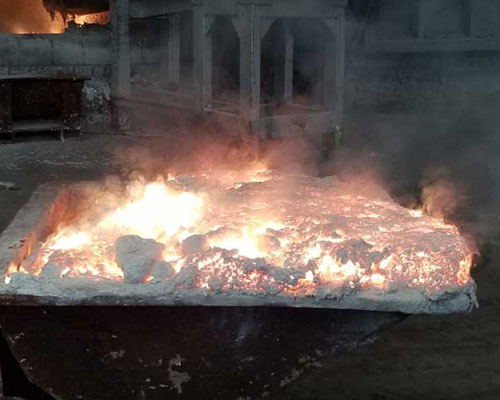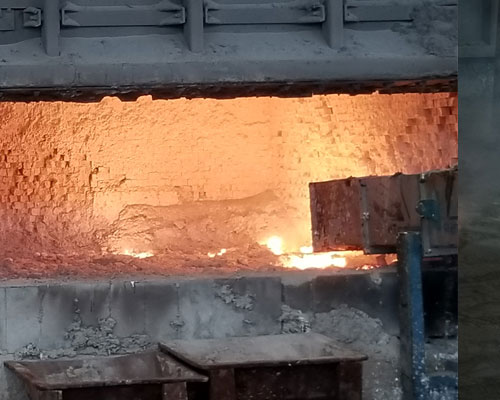Aluminum casting loss is the general term for the unrecoverable metal loss and the metal contained in aluminum slag caused by oxidation, volatilization and interaction with furnace walls and refining agents during the smelting process of aluminum and aluminum alloys. Aluminum casting is the process of mixing, stirring, standing, refining, and slagging of liquid aluminum into finished or semi-finished products of aluminum ingots, bars or other shapes. Aluminum and aluminum alloys will experience varying degrees of loss due to oxidation, refining, slagging and other reasons during the casting process.
The main external manifestations of casting loss can be divided into two parts: one is in the form of pure aluminum ash, and the other is in the form of bulk aluminum, defective aluminum and aluminum slag.
The aluminum industry company’s melting and casting workshop has conducted statistics. Among them, non-recoverable pure aluminum ash accounts for about 90% of casting loss (oxidation burning loss and slag formation), and other factors account for about 10%. Further statistics are made for other factors that account for 10%. According to the analysis, it is mainly caused by the secondary furnace burning loss of large aluminum and inferior aluminum and the aluminum content in the aluminum ash (the main raw material of aluminum ash aluminum). Therefore, the main reasons for the inherent casting loss are oxidation burning loss, secondary Secondary burning loss of product aluminum, aluminum content in aluminum ash.

Factors affecting casting loss are:
1) Liquid aluminum temperature.
2) The contact strength of liquid aluminum and oxygen.
3) Aluminum content in aluminum slag.
4) Aluminum liquid brought out by slagging.
5) How much is the defective aluminum and bulk aluminum.
6) Other losses caused.
Ways to reduce casting loss:
- Control the temperature of liquid aluminum.
- Reduce the contact strength between liquid aluminum and air.
- The greater the contact strength between liquid aluminum and oxygen, the more serious the oxidation burning loss and the greater the casting loss.
- Correctly select and use refining agent to fully separate slag and aluminum.
- Effective treatment of aluminum slag generated in the casting process.
- Strictly control the quality of slagging to prevent liquid aluminum from being taken out.

